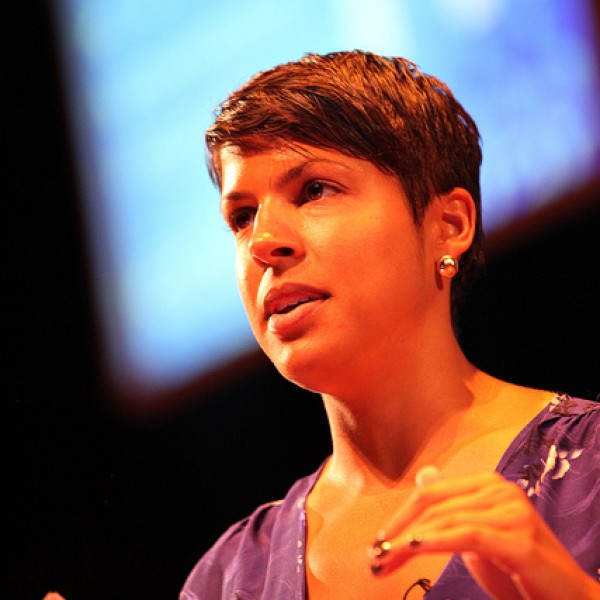In Brazil, Championing the US Digital Services Playbook
- JESSICA MCKENZIE
- August 3, 2015
- 8:03 pm
A civic tech start-up in Brazil has translated the U.S. Digital Services Playbook into Portuguese and wants to distribute it to elected representatives and government agencies.

Last year, a civic tech start-up in Brazil called Núcleo Digital (Digital Core) translated the U.S. Digital Services Playbook into Portuguese and began trying to distribute it to elected representatives and government agencies. Recently, through a colleague in a civic hacking community called HackersBR, they have succeeded in getting the playbook in front of a government administrator in Ceará, Brazil’s eighth most populous state.
Digital Core first began working together as a digital lab in Sao Paulo’s City Hall. In 2013, the Urban Development Secretariat Chief Officer, Weber Sutti, invited Vini Russo, Digital Core’s CEO, to build a digital platform to support citizen participation in the review and revision of the Department of Urban Development’s Master Plan. To build his team, Russo reached out to activists he had known and worked with since 2008, all of whom had an interest in civic tech and updating democracy through technology.
The website they went on to build made available “all the information related to the participatory process, such as schedules, results, news, and files…[as well as] innovative participatory tools, such as an online proposal form, a shared map and a collaborative draft bill, where any citizen could post specific comments and suggestions for each article.” The city of Sao Paulo’s website states that the platform made possible “unprecedented” levels of citizen participation.
“We made it very fast,” says Maria Shirts, who helps with public relations and project management at Digital Core. “With free software and open codes. We like to say that we hacked City Hall. In a legal way.”
After the successful implementation of the urban policy platform, the team stayed on at City Hall to build digital tools for other government agencies, facing considerable opposition in their quest to made government more open and transparent. “The City Hall, and our government in general, is very closed to new digital initiatives,” Shirts tells Civicist. “Two years ago it was very taboo [to share code on Github, for example]. We kind of changed this thinking.”
Shirts says that her team was at City Hall for more than a year, and that they were starting to change the culture around technology. But in late 2014, Shirts says, “the data agency [PRODAM] began kind of a conflict with us because they have another kind of thinking.” According to Shirts, the agency refused to give her team the data they needed to build their platforms, so they began to think about leaving City Hall.
It was at that time, September 2014, that the team translated the U.S. Digital Services Digital Playbook:
It was our last month in city hall. We were already thinking that we were leaving, thinking ‘how can we leave city hall but also keep doing this job of opening government.’ We had a horizon but we were not sure where this horizon was going to take us…At the time we could think [only] about spreading this digital word in other sectors, for other parties, other candidates.
The presidential election took place that month. “We were trying to show politicians that they should follow some kind of digital guidelines,” Shirts says.
The U.S. Digital Services Playbook is a list of 13 “plays” that government can make for better technology policy and practices, beginning with “Understand what people need” and ending with “Default to open.” The reasoning behind each play is explained and the playbook includes a checklist of things to do successfully carry out the play, and questions to ask to ensure you’re making the right choice.
For example, the checklist for “Default to open” includes the command to “Ensure that we maintain the rights to all data developed by third parties in a manner that is releasable and reusable at no cost to the public.” The key questions include “If there is an API, what capabilities does it provide? Who uses it? How is it documented?”
The Maria Shirts and her colleagues left City Hall and started Digital Core in October. They have not had much luck getting the playbook in government hands. Their biggest coup, getting it in front of a staffer in Ceará, only occurred in the past few months, through one of their connections in HackersBR, a national network of civic hackers in Brazil. (HackersBR, while only four months old, has spread to more than ten cities already.)
Shirts says that they also have a close relationship with the opposition, the Sustainability Network party, and they shared the playbook with some of their candidates in 2014, but none of them were elected.
“Baby steps, but we are getting there,” says Shirts.
Jennifer Pahlka, the founder of Code for America and former U.S. Deputy Chief Technology Officer, tells Civicist that there was no attempt made to track international adoption of the USDS playbook but that she has heard it is being used in Puerto Rico.
Although she says “I hope that everyone uses it,” Pahlka acknowledges that the playbook “was intended to validate an approach.”
“It’s not possible to suddenly start following these practices without a lot of work,” she adds.


